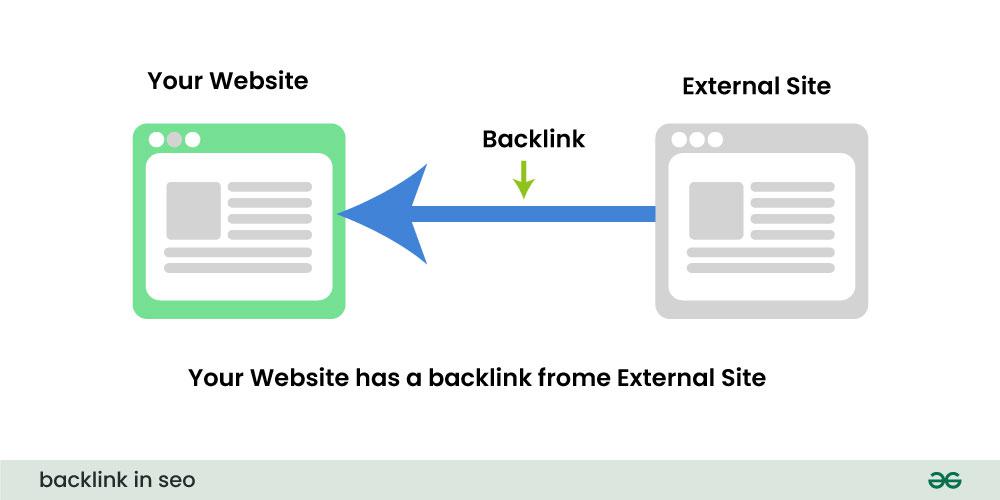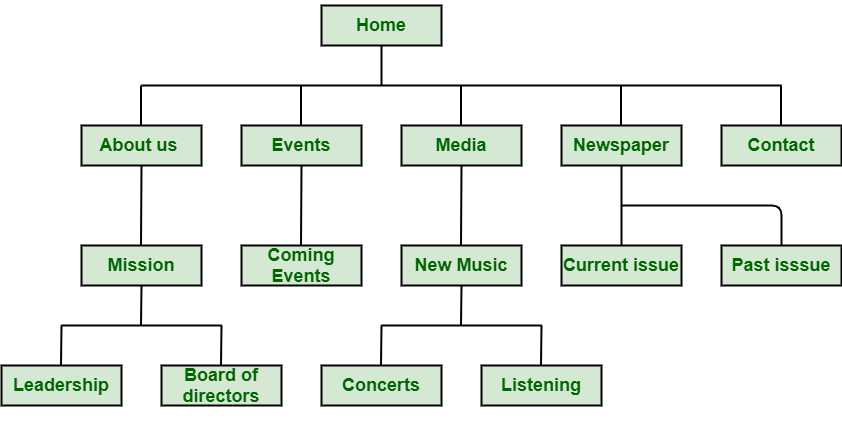Website Ranking – Definition, Importance and How to Improve?
Last Updated :
06 Feb, 2024
Website ranking refers to the position or placement of a website in search engine results pages (SERPs) for specific keywords or queries. Search engines, such as Google, Bing, and Yahoo, use complex algorithms to evaluate and rank websites based on various factors. The goal of website ranking is to provide users with the most relevant and high-quality results in response to their search queries.
What Is Website Ranking?

Website ranking in SERPs
Website ranking refers to the position a website holds on search engine results when users input relevant queries. Search engines employ complex algorithms to evaluate and rank websites based on numerous factors, aiming to deliver the most relevant and valuable content to users. The primary goal is to ensure a positive user experience by presenting the most authoritative and useful information.
Several factors influence website ranking, and search engines regularly update their algorithms to improve the accuracy and fairness of the rankings. Some of the key elements that impact website ranking include:
- Relevance of Content: Search engines aim to deliver content that is relevant to the user’s search query. Websites with high-quality, informative, and up-to-date content are more likely to rank higher.
- Keyword Optimization: Incorporating relevant keywords naturally into the content, meta tags, and other on-page elements helps search engines understand the focus and subject matter of a webpage.

Keyword Searching using Ubersuggest
- Backlinks: The number and quality of links pointing to a website (backlinks) play a significant role in its ranking. High authority and relevant backlinks are considered positive signals by search engines.

- Website Structure and Performance: Well-organized and user-friendly websites tend to rank higher. Factors such as page load speed, mobile-friendliness, and a clear site structure contribute to a positive user experience.

- User Engagement: Metrics like bounce rate, time spent on site, and click-through rate can influence ranking. If users find a website valuable and engaging, search engines may interpret it as a signal of quality.
- Social Signals: While the direct impact of social media on search rankings is debated, content that gets shared and discussed on social platforms can indirectly contribute to increased visibility and traffic.
- Domain Authority: Domain authority is a measure of the overall strength and credibility of a domain. Websites with higher domain authority are often seen as more trustworthy by search engines.

Domain Authority
- Freshness of Content: Search engines may prioritize websites that regularly update their content. Fresh and relevant content indicates to search engines that a website is actively maintained.
- Security: Secure websites using HTTPS are preferred by search engines. SSL certificates, which provide secure and encrypted connections, can positively impact a website’s ranking.
Why Website Ranking Is Important?
Website ranking is of paramount importance for several reasons, particularly in the context of online visibility, user trust, and business success. Here are some key reasons why website ranking matters:
- Increased Visibility and Traffic: Websites that rank higher in search engine results are more likely to be seen by users. Improved visibility leads to increased organic traffic, as users tend to click on the first few results that appear in search engine results pages (SERPs). Higher rankings mean more opportunities for users to discover and engage with your content.
- Credibility and Trust: Users often associate higher search rankings with credibility and trustworthiness. When a website appears at the top of the search results, it is perceived as more authoritative and relevant to the user’s query. This trust factor can positively impact the user’s decision to click on the link and explore the content.
- Competitive Advantage: In competitive industries, securing top positions in search results provides a significant advantage. Users are more likely to choose a website that appears on the first page of search results over those on subsequent pages. Outranking competitors can lead to increased market share and customer acquisition.
- Targeted Audience Reach: Effective SEO and high website rankings allow businesses to reach their target audience more effectively. By optimizing for relevant keywords, a website can attract users actively searching for information, products, or services related to its niche. This targeted approach increases the likelihood of converting visitors into customers.
- Cost-Effectiveness: Organic traffic generated through high search rankings is generally more cost-effective than paid advertising. While paid advertising can provide immediate visibility, organic traffic is sustainable over the long term. Investing in SEO to improve website ranking can lead to ongoing benefits and a higher return on investment (ROI).
- User Experience Improvement: Search engines reward websites that prioritize user experience. Elements such as fast loading times, mobile responsiveness, and easy navigation contribute to a positive user experience and can positively influence website rankings. Prioritizing user experience not only benefits SEO but also enhances overall customer satisfaction.
- Global Reach: For businesses with a global presence or aspirations, high search rankings can facilitate reaching an international audience. Appearing in top search results increases the visibility of products, services, or information on a global scale, allowing businesses to expand their reach beyond local markets.
- Data-Driven Insights: Monitoring website rankings provides valuable insights into user behavior and preferences. Analyzing which keywords drive traffic and understanding user engagement metrics allows website owners to make informed decisions, refine content strategies, and adapt to changing market demands.
- Adaptation to Evolving Trends: Search engine algorithms continually evolve to provide the best possible user experience. Staying abreast of SEO trends and adapting strategies accordingly is essential for maintaining and improving website rankings. A proactive approach ensures that a website remains competitive and resilient to industry changes.
How To Improve Website Ranking?
Improving website ranking involves a combination of strategic and consistent efforts in various aspects of search engine optimization (SEO). Here are actionable steps to enhance your website’s ranking in search engine results:
- Keyword Research and Optimization:
- Conduct thorough keyword research to identify relevant terms and phrases your target audience is likely to use.
- Optimize your website’s content, including titles, headings, and body text, with these keywords. Ensure a natural and contextually relevant integration.

- Quality Content Creation:
- Create high-quality, informative, and engaging content that addresses the needs and interests of your target audience.
- Regularly update your content to reflect current trends and provide fresh information. Google tends to favor regularly updated and relevant content.
- Optimize Meta Tags:
- Write compelling and relevant meta titles and meta descriptions for each page, incorporating targeted keywords.
- Meta tags provide concise information about the content and influence click-through rates, affecting your website’s overall ranking.

Meta Tags in SEO
- Create a Mobile-Friendly Website:
- Ensure that your website is responsive and provides a seamless user experience across various devices, particularly mobile devices.
- Google considers mobile-friendliness as a ranking factor, so optimizing for mobile can positively impact your search rankings.

Mobile Friendly websites
- Improve Website Loading Speed:
- Optimize images, minimize HTTP requests, and leverage browser caching to improve your website’s loading speed.
- A faster-loading website enhances the user experience and is favored by search engines.
- Build Quality Backlinks:
- Focus on building high-quality backlinks from reputable and relevant websites in your industry.
- Natural and authoritative backlinks signal to search engines that your content is trustworthy and valuable.

Backlink Example
- Social Media Engagement:
- Actively engage on social media platforms to promote your content and encourage sharing.
- Social signals, such as likes, shares, and comments, can indirectly influence your website’s ranking.

GFG on Social Media
- Optimize Images and Multimedia:
- Compress images to reduce file sizes without compromising quality.
- Use descriptive filenames and alt text for images to enhance accessibility and provide search engines with context.
- Improve User Experience:
- Enhance the overall user experience by ensuring clear navigation, intuitive design, and easy accessibility.
- Reduce bounce rates by providing valuable content and engaging users with a well-structured website.
- Secure Your Website with HTTPS:
- Obtain and install an SSL certificate to secure your website with HTTPS.
- Google considers secure websites as more trustworthy, which can positively impact your search rankings.

HTTPS Working
- Fix Broken Links:
- Regularly check for broken links on your website and fix them promptly.
- Broken links can negatively impact user experience and affect your website’s credibility.

- Optimize for Local Search

-
- If your business has a local presence, optimize your website for local search by claiming your Google My Business listing and ensuring consistent NAP (Name, Address, Phone Number) information.
How To Check Website Ranking?
Checking your website’s ranking is crucial to understanding its visibility in search engine results. Here are several methods and tools you can use to check your website ranking:
- Google Search Console:
- Google Search Console is a free tool provided by Google that allows you to monitor your website’s performance in Google Search.
- Login to Google Search Console, select your property and navigate to the “Performance” section to see data on clicks, impressions, and average position for your website.
- Google Analytics:
- Google Analytics provides insights into website traffic, including the source of traffic and user behavior.
- In the “Acquisition” section, you can explore the “Channels” report to see how well your website is performing in organic search.
- Manual Search on Search Engines:
- Conduct manual searches on search engines like Google, Bing, or Yahoo using relevant keywords.
- Note the position of your website in the search results for specific queries. This method is simple but may not provide a comprehensive overview.

Manual Search
- Online Rank Checker Tools:
- Several online tools can provide a quick snapshot of your website’s ranking for specific keywords. Examples include Ahrefs, SEMrush, Moz, and RankWatch.
- Enter your website URL and target keywords to get insights into your current rankings.

ranking tool
- Browser Extensions:
- Browser extensions like MozBar or SEOquake can display real-time data about a web page’s SEO metrics, including its ranking for specific keywords.
- Install the extension and navigate to your website to see relevant ranking information.

rank checking using ubersuggest extension
- Rank Tracking Software:
- Invest in dedicated rank-tracking software that allows you to monitor your website’s rankings over time.
- These tools often provide detailed reports, historical data, and insights into keyword performance. Examples include ProRankTracker, SERPWatcher, and AccuRanker.
- Local SEO Tools:
- If your business has a local presence, use local SEO tools like BrightLocal or Whitespark to track your website’s performance in local search results.
- These tools often provide location-specific rankings and insights.
- SERP Preview Tools:
- SERP (Search Engine Results Page) preview tools allow you to simulate searches and view how your website appears in the search results.
- They often include features to check snippets, titles, and meta descriptions. Examples include Portent’s SERP Preview Tool.
Conclusion
In the ever-evolving landscape of online visibility, understanding and implementing effective website ranking strategies are essential for success. By focusing on quality content, building a strong backlink profile, optimizing technical SEO elements, enhancing user experience, and leveraging social signals, you can position your website favorably on search engine results pages. Remember to conduct regular keyword research, stay informed about industry trends, and adapt your strategies to align with the dynamic nature of search engine algorithms. With a strategic and holistic approach to SEO, your website can rise through the ranks and achieve sustained online success.
Share your thoughts in the comments
Please Login to comment...